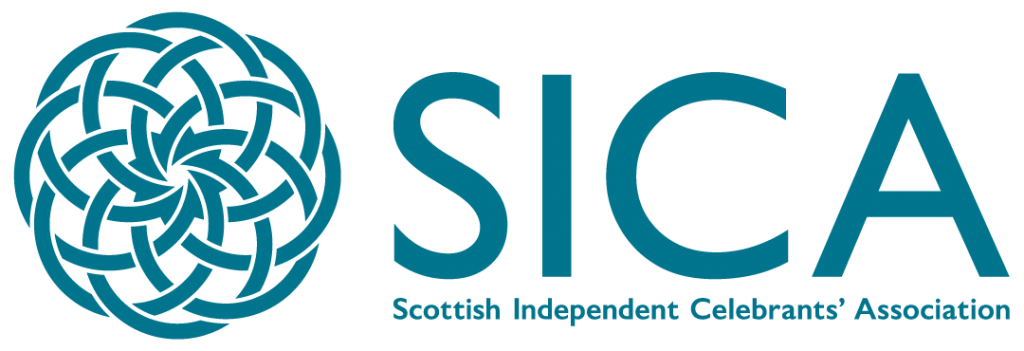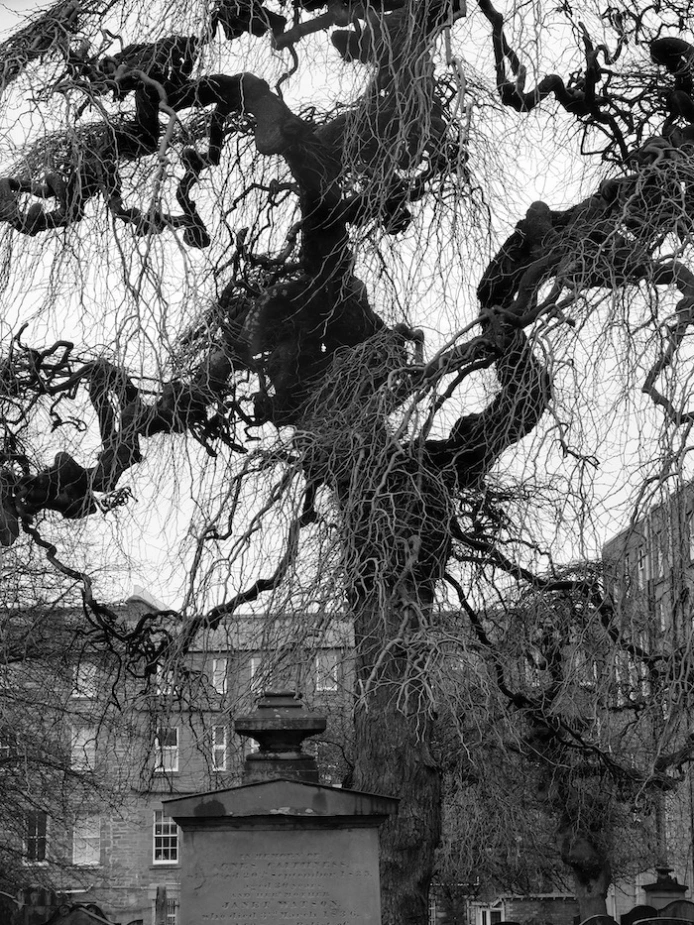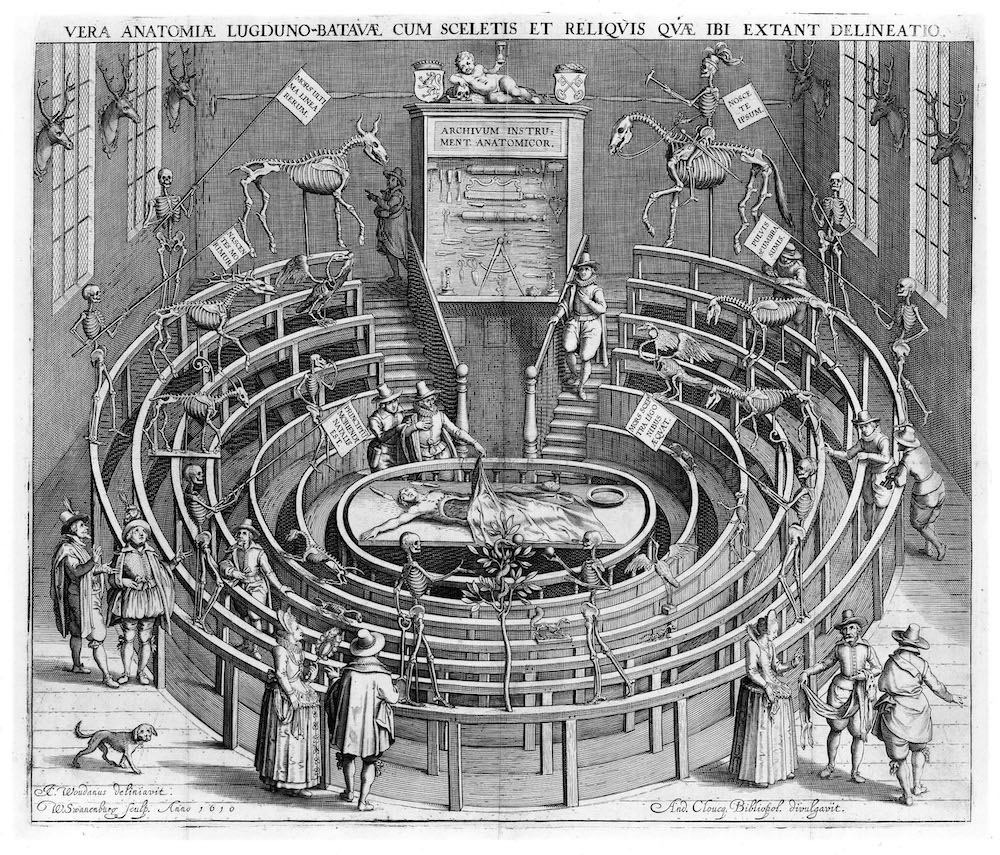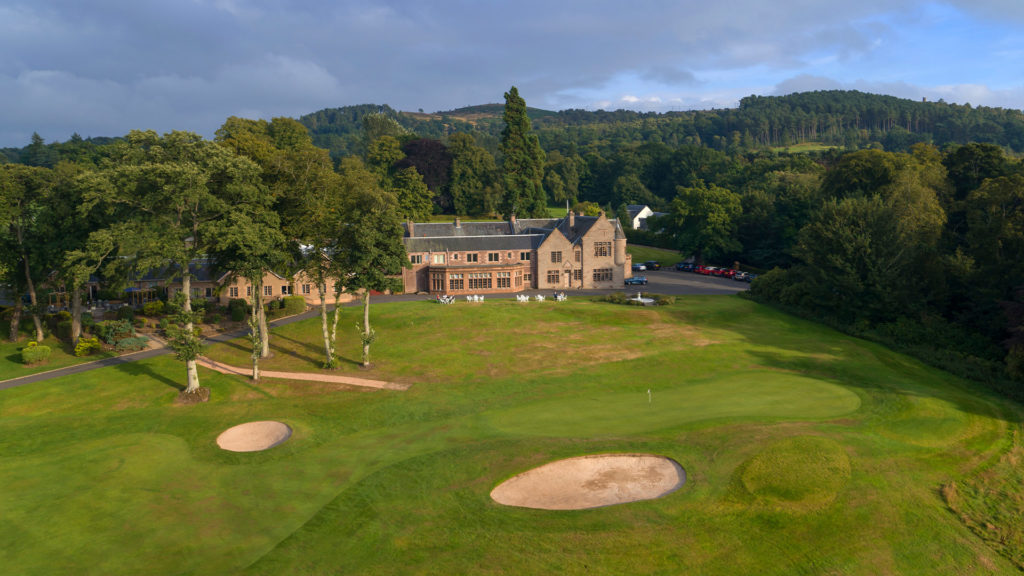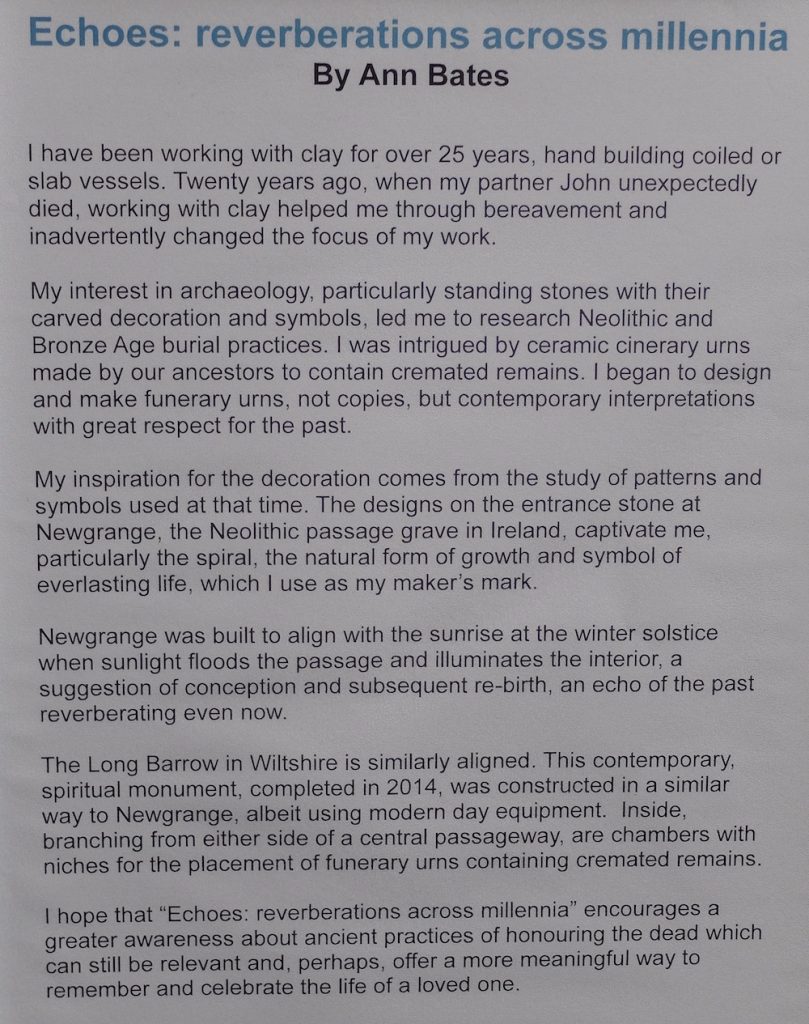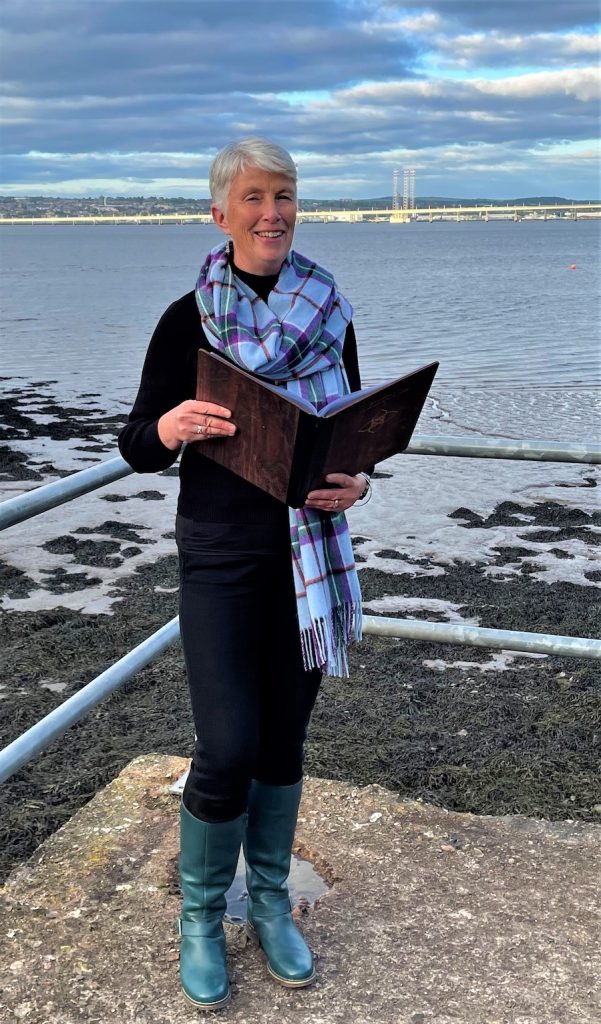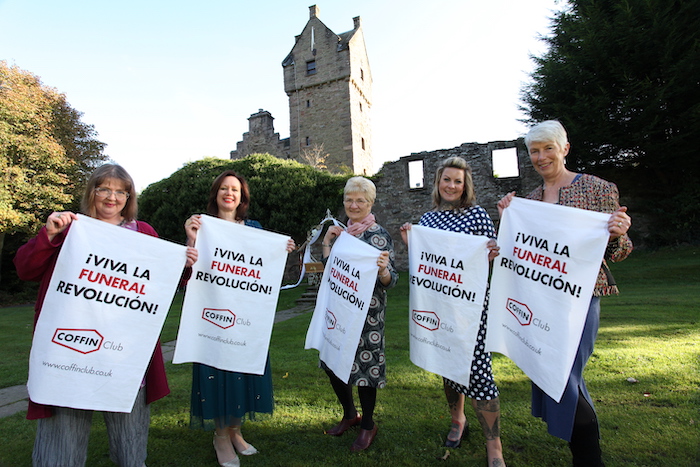Yesterday I travelled through to Falkirk to have a conversation with Gillian for the blog. I’m originally from Falkirk and I still have family there so it was a chance to drive my mum through to see her sister, while Gillian and I spoke about our work as celebrants. It’s always a pleasure to speak to Gillian – we’re both on the committee of the Scottish Independent Celebrants’ Association (SICA) and we often meet on zoom calls for local celebrants.
So over tea and cakes I began by asking how long Gillian had been a celebrant and what had drawn her into this profession. “I started in March 2020… not, as it turned out, the best time to be launching into a new profession!”
After a career in special education, Gillian was seeking something that would continue to be challenging and rewarding – but would allow her more flexibility to pursue her interests. She had experienced bereavement and loss in both personal and professional life and hadn’t always been impressed by the quality of the ceremonies. And so the idea grew that she might bring some of her lived experience and skills to the world of celebrancy. “When you’ve led school assemblies as I have – and I loved them – you certainly develop the ability to hold a space.”
What sorts of services does Gillian perform? “Funerals, namings of all kinds, memorials and, as I am ordained as a OneSpirit Interfaith Minister, I can conduct legal weddings.” Does that mean that Gillian’s ceremonies are religious? “No, not necessarily. As with all independent celebrants, I follow what family and friends want from the ceremony, from something completely non-religious to incorporating spiritual elements.”
Funerals, naming and weddings are the usual sorts of services that most celebrants offer. But Gillian wanted to speak about two other types of ceremony. “During the pandemic, I was asked to perform a couple of private graduation ceremonies. It’s obviously been hard for colleges and universities to organize in-person graduations so that’s led to a desire to mark the achievements of these students by their families. I held ceremonies in private gardens – numbers were limited but I was able to read out messages from friends and family. Now that things are settling down it will be interesting to see if families will still want these more private events.” That’s certainly something that interests me as I progress through the second year of my masters degree. My course is an online one and even though I would like to attend a graduation ceremony at Glasgow University itself, many of my classmates live in other countries and would find it difficult to visit.
Another type of ceremony that Gillian wants to develop is an honouring of ancestors: “Many people are interested in finding where they come from and who their ancestors were. We might be talking about immediate family or even quite distant relatives. And in exploring this, some people feel a need to mark these connections. I think that’s where a sympathetic celebrant can offer a valuable service.” These thoughts held resonance for me, sitting as we were so close to the town where I grew up and from where so many of my own ancestors lived. Gillian is keen to explore how this work might align with organizers of tours for people searching their roots in Scotland.
So what, I wondered, was it that Gillian brings to her celebrant work? “Maybe it stems from my background in special education, but I have a great interest in how I can offer additional support to families struggling with grief and loss. For instance, a mother trying to explain the death of their father to the children is hard enough but imagine the situation if a child has autism. This is where I feel I can ‘walk together’ with families and offer something extra in helping them deal with these immensely difficult situations. And I’m working on innovative ways, such as Talking Mats, to help people talk about and plan funerals.”
Does that special support also apply to weddings? “Perhaps not with the same intensity. But I really feel I need to get to know the couple. I may perform fewer ceremonies but I bring that same level of commitment to each one.”
Thank you Gillian, for your time and for speaking to me about your work. It was fascinating and inspiring!
To find out more, visit Gillian’s website or Facebook page.
Michael Hannah, Dundee, March 2022
